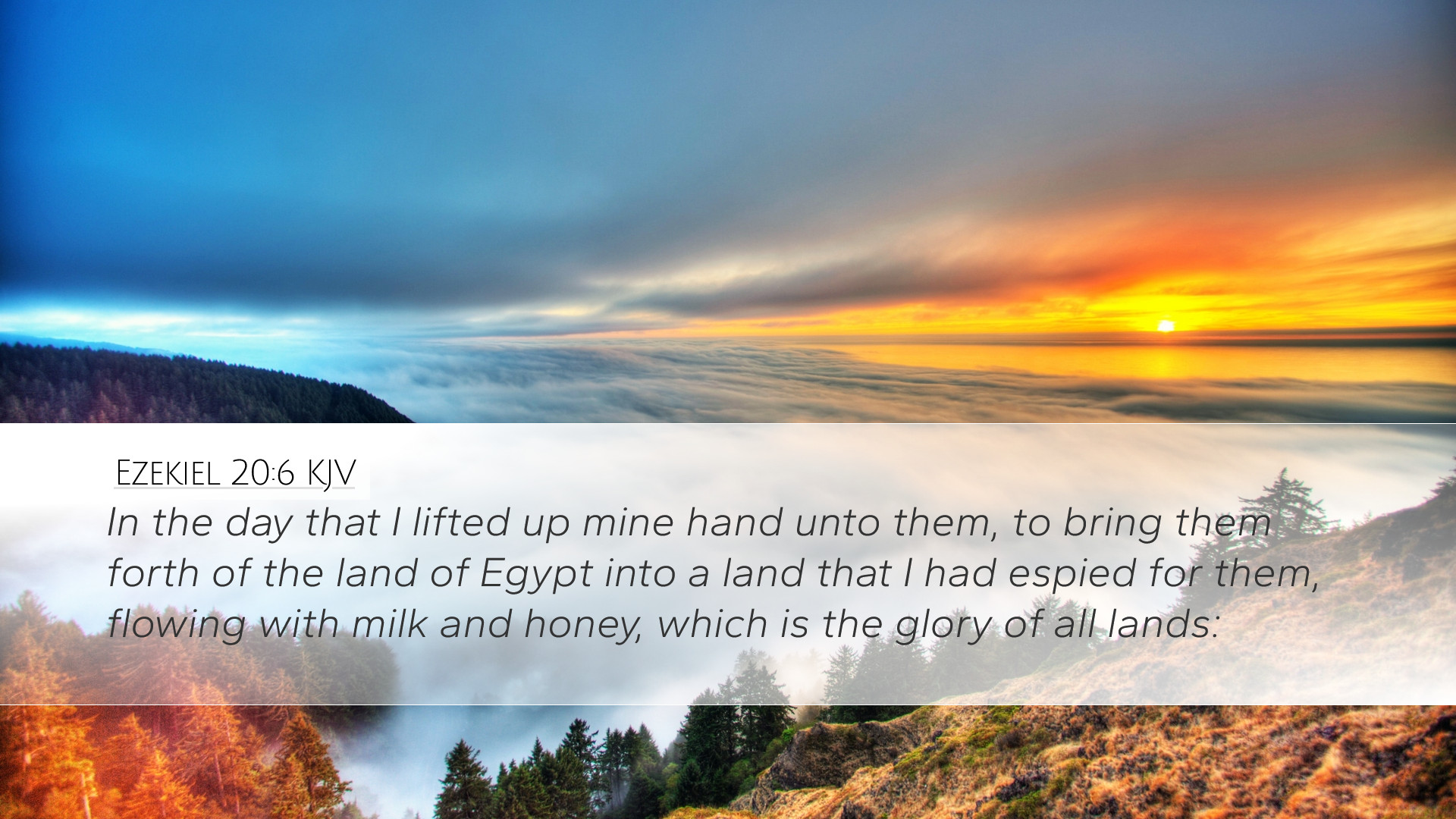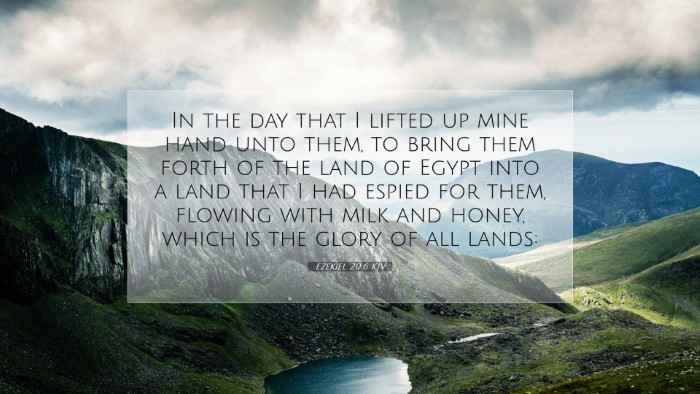Ezekiel 20:6 Commentary
Ezekiel 20:6: "In that day I lifted up mine hand unto them, to bring them forth of the land of Egypt into a land that I had espied for them, flowing with milk and honey, which is the glory of all lands."
Introduction
This verse serves as a profound reminder of God's faithfulness in His covenant with Israel. Ezekiel recounts God's promise during the exodus from Egypt, highlighting both the physical deliverance and the spiritual implications of this act.
Significance of the Verse
The proclamation begins with the divine act of raising God's hand, symbolizing His commitment and the authority by which He leads His people. The promise of a land "flowing with milk and honey" signifies abundance, prosperity, and divine favor. This imagery paints a vivid picture of the blessings that awaited Israel as they emerged from slavery.
Insights from Matthew Henry
Henry emphasizes the notion of divine promise and fulfillment. He notes that God's hand being lifted is a prelude to His covenant actions:
- Divine Assurance: God’s promise was not just about the physical land but also about the relationship that He desired with His people.
- Contrast to Bondage: By recalling their deliverance from Egypt, Henry draws attention to the transformation from oppression to abundance, reflecting God's power to change one’s circumstances.
- Spiritual Implications: The land symbolizes spiritual rest and blessing, representing God’s kingdom and the richness of life in communion with Him.
Insights from Albert Barnes
Barnes further explicates the practical implications of God bringing the Israelites out of Egypt:
- Historical Context: He highlights the historical roots of Exodus as foundational to Israel’s identity and their understanding of God's intervention in their history.
- Unconditional Love: Barnes underscores the unconditional nature of God's love and care, portraying Him as a beacon of hope amidst their plight.
- Promise of Inheritance: The land of promise is framed as an inheritance; it involves a sense of belonging and identity that God was restoring to an oppressed people.
Insights from Adam Clarke
Clarke offers a theological perspective that encapsulates the covenantal themes:
- Covenantal Faithfulness: Clarke reflects on the covenant made with the patriarchs, illustrating that this promise is much larger than just the present moment—it is part of God's unfolding redemptive plan.
- Symbolism of Milk and Honey: He notes that the phrase "flowing with milk and honey" characterizes the land’s fertility and produce, creating an image of a thriving community flourishing under God's provision.
- Divine Initiative: Clarke emphasizes that God's act of bringing them forth was initiated by Him, portraying God's sovereign choice to act in their favor, indicating that deliverance comes from God alone.
Theological Implications
This verse provides rich theological themes relevant for contemporary application:
- God's Sovereignty: The sovereignty of God is highlighted in His decision to lift His hand and deliver His people, reminding scholars and theologians of His active role in history.
- Relationship Over Ritual: The focus shifts from mere ritual adherence to a deeper relational understanding of covenant; God desires fellowship with His people.
- Promised Land Today: The metaphor of 'land flowing with milk and honey' invites reflection on the nature of our spiritual inheritance in Christ; it beckons us to explore what it means to be heirs of God's promises today.
Conclusion
Ezekiel 20:6 serves as a crucial reminder of God's faithfulness and the richness of His promise. The insights from Matthew Henry, Albert Barnes, and Adam Clarke provide a multifaceted understanding of this passage, inviting reflection on how God's past actions continue to inform the faith and lives of believers today. For pastors, students, theologians, and Bible scholars, this verse encourages a profound appreciation of the covenant relationship and the ongoing journey toward the fullness of life in God’s promised abundance.


